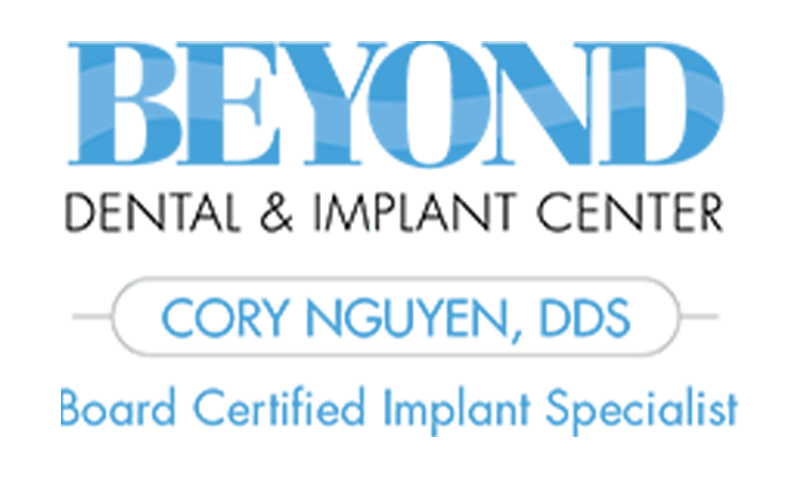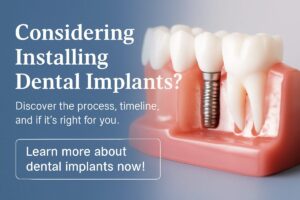This article explains what full mouth teeth replacement means, who can benefit, common treatment options, typical timelines and costs, and how to pick the right doctor. If you or a loved one are facing widespread tooth loss, failing teeth, or long-term denture problems, this guide will help you understand practical next steps and plan a safe, effective path to a functional, comfortable smile.
What Is Full Mouth Teeth Replacement?
Full mouth teeth replacement refers to restoring most or all of the teeth in one or both arches. It differs from replacing a single tooth because the goal is a complete rehabilitation of function, comfort, and appearance. Rather than fixing isolated problems, a full-mouth plan addresses chewing ability, bite alignment, gum health, and smile esthetics together.
Common Options For Full Mouth Teeth Replacement
Dental implants (single, multiple, and implant-supported arches)
Dental implants are titanium posts placed in the jaw that act like tooth roots. They can support single crowns, multi-tooth bridges, or full-arch prostheses like All-on-4 or All-on-X. Single and multiple implants are used when some natural teeth remain; implant-supported arches are chosen when many or all teeth are missing. Implants offer the best long-term stability and chewing function for most patients.
Removable dentures and overdentures
Traditional removable dentures sit on the gums and can restore appearance and basic function, but they may shift and reduce chewing efficiency. Implant-retained overdentures attach to implants for improved stability and comfort. Overdentures are often a lower-cost implant option and can significantly improve everyday function compared with traditional dentures.
Fixed bridges and hybrid prostheses
Fixed bridges replace missing teeth by anchoring to natural teeth or implants and are non-removable. Hybrid prostheses (fixed-detachable) use implants to support a bridge that is screwed into place and only removed by a clinician. Hybrids combine strength and esthetics and are often chosen for full-arch restorations when implants are available in sufficient number and position.
Who Is A Good Candidate?
Good candidates are people who want improved function and appearance and who can tolerate surgery. Key factors include jawbone volume and density, gum health, control of active infections, overall medical health, and lifestyle factors like smoking. Certain conditions—uncontrolled diabetes, active gum disease, or heavy smoking—may require treatment or modification before implants are placed.
Special considerations for patients with TMJ or sleep apnea
Patients with TMJ disorders or sleep apnea may need neuromuscular or sleep evaluations as part of treatment planning. Bite position, jaw muscle function, and airway considerations can change how a full-mouth plan is designed and the type of prosthesis recommended.
Treatment Process & Recovery Timeline
Typical steps include:
- Consultation and medical/dental history review
- Clinical exam and 3D imaging (CBCT) for bone and nerve mapping
- Digital planning and surgical guide fabrication
- Extractions and bone grafting if needed
- Implant placement and a healing period (often 3–6 months)
- Attachment of final restorations or fixed prosthesis
What to expect during recovery
Recovery varies by procedure. After extractions or implant surgery expect swelling, mild pain, and soft-food diet for a few days to weeks. Many patients receive temporary restorations to maintain appearance and chewing during healing. Follow-up visits ensure proper healing and fit of the final prosthesis.
Cost, Insurance & Financing
Cost depends on the number of implants, need for bone grafts or sinus lifts, the type of final prosthesis, lab fees, and materials. Full-arch implant solutions cost more than removable dentures but often last longer and require fewer long-term adjustments. Prices vary widely based on region and clinician expertise.
Insurance and payment options
Dental insurance often pays toward parts of the treatment but typically has annual limits and exclusions for implants. Many practices offer in-house financing, third-party medical-credit plans, and phased treatment options to spread costs. Ask the office for a detailed estimate and financing choices before you start.
How To Choose the Right Provider for Full Mouth Teeth Replacement
Look for clinicians with specific experience in full-mouth rehabilitation, advanced training in implants and digital planning, and a team approach that includes restorative and surgical expertise. Review before-and-after photos, patient testimonials, and ask about complication rates and follow-up care. Cross-disciplinary care—combining implants, neuromuscular assessment, and sleep medicine when needed—improves outcomes for complex cases.
Why board-certified care matters
Board certifications and specialty diplomas indicate advanced training and commitment to high standards. Clinicians with recognized credentials tend to follow evidence-based protocols, which improves safety and long-term results.
About Dr. Cory Nguyen and Beyond Dental & Implant Center
Dr. Cory Nguyen, DDS, FAAID, FICOI, DABOI/ID, DABDSM is triple-board certified with advanced training from Baylor College of Dentistry and the Medical College of Georgia. He has 15+ years of clinical experience in neuromuscular dentistry, dental implants, and sleep medicine. At Beyond Dental & Implant Center he uses digital planning and evidence-based care to treat complex TMJ disorders, sleep apnea, and full-mouth rehabilitation cases.
Next Steps & Call to Action
Ready to learn which option fits your needs? Schedule a consultation for a personalized plan. For your first visit bring:
- Your medical history and a current list of medications
- Recent dental x-rays or CBCT scans if you have them
- Questions about goals, budget, and timeline
Many providers also offer virtual consultations to review your history and images before an in-office visit. Contact the office to book an appointment and start your path to a healthy, functional smile.






